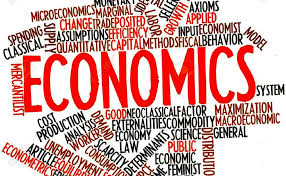Market Economy – W.B.C.S. Examination Notes – On Economics.
Indian Economy and Economics is considered as the significant part of the WBCS Exam. It is a relevant subject for W.B.C.S. Prelims Exam as well as rather for Main and Interview too.Economics is considered as a tough optional compared to other optional subject. If the aspirant is a graduate in Economics, then all that you need to cover the concepts and theories first. After that aspirants have to work on current affairs, additionally to give a final touch as per the W.B.C.S. Exam syllabus.A market economy is a system where the laws of supply and demand direct the production of goods and services. Supply includes natural resources, capital, and labor. Demand includes purchases by consumers, businesses, and the government.Continue Reading Market Economy – W.B.C.S. Examination Notes – On Economics.
Businesses sell their wares at the highest price consumers will pay. At the same time, shoppers look for the lowest prices for the goods and services they want. Workers bid their services at the highest possible wages that their skills allow. Employers seek to get the best employees at the lowest possible price.
Capitalism requires a market economy to set prices and distribute goods and services. Socialism and communism need a command economy to create a central plan that guides economic decisions. Market economies evolve from traditional economies. Most societies in the modern world have elements of all three types of economies. That makes them mixed economies.
Six Characteristics of a Market Economy
The following six characteristics define a market economy.1
-
- Private Property. Most goods and services are privately-owned. The owners can make legally-binding contracts to buy, sell, or lease their property. In other words, their assets give them the right to profit from ownership. But U.S. law excludes some assets. Since 1865, you cannot legally buy and sell human beings. That includes you, your body, and your body parts.
- Freedom of Choice. Owners are free to produce, sell, and purchase goods and services in a competitive market. They only have two constraints. First is the price at which they are willing to buy or sell. Second is the amount of capital they have.
-
- Motive of Self-Interest. Everyone sells their wares to the highest bidder while negotiating the lowest price for their purchases. Although the reason is selfish, it benefits the economy over the long run. This auction system sets prices for goods and services that reflect their market value. It gives an accurate picture of supply and demand at any given moment.
- Competition. The force of competitive pressure keeps prices low. It also ensures that society provides goods and services most efficiently. As soon as demand increases for a particular item, prices rise thanks to the law of demand. Competitors see they can enhance their profit by producing it, adding to supply. That lowers prices to a level where only the best competitors remain. This competitive pressure also applies to workers and consumers. Employees vie with each other for the highest-paying jobs. Buyers compete for the best product at the lowest price. There are three strategies that work to maintain a competitive advantage.To view Economics Optional Syllabus , Click Here.
-
- System of Markets and Prices. A market economy relies on an efficient market in which to sell goods and services. That’s where all buyers and sellers have equal access to the same information. Price changes are pure reflections of the laws of supply and demand. There are five determinants of demand.
- Limited Government. The role of government is to ensure that the markets are open and working. For example, it is in charge of national defense to protect the markets. It also makes sure that everyone has equal access to the markets. The government penalizes monopolies that restrict competition. It makes sure no one is manipulating the markets and that everyone has equal access to information.
Four Advantages of a Market Economy
Since a market economy allows the free interplay of supply and demand, it ensures that the most desired goods and services are produced. Consumers are willing to pay the highest price for the things they want the most. Businesses will only create those things that return a profit.
Second, goods and services are produced in the most efficient way possible. The most productive companies will earn more than less productive ones.
Third, it rewards innovation. Creative new products will meet the needs of consumers in better ways that existing goods and services. These cutting-edge technologies will spread to other competitors so they, too, can be more profitable. This illustrates why Silicon Valley is America’s innovative advantage.
Fourth, the most successful businesses invest in other top-notch companies. That gives them a leg up and leads to increased quality of production.
Please subscribe here to get all future updates on this post/page/category/website


 +919674493673
+919674493673  mailus@wbcsmadeeasy.in
mailus@wbcsmadeeasy.in







































































































